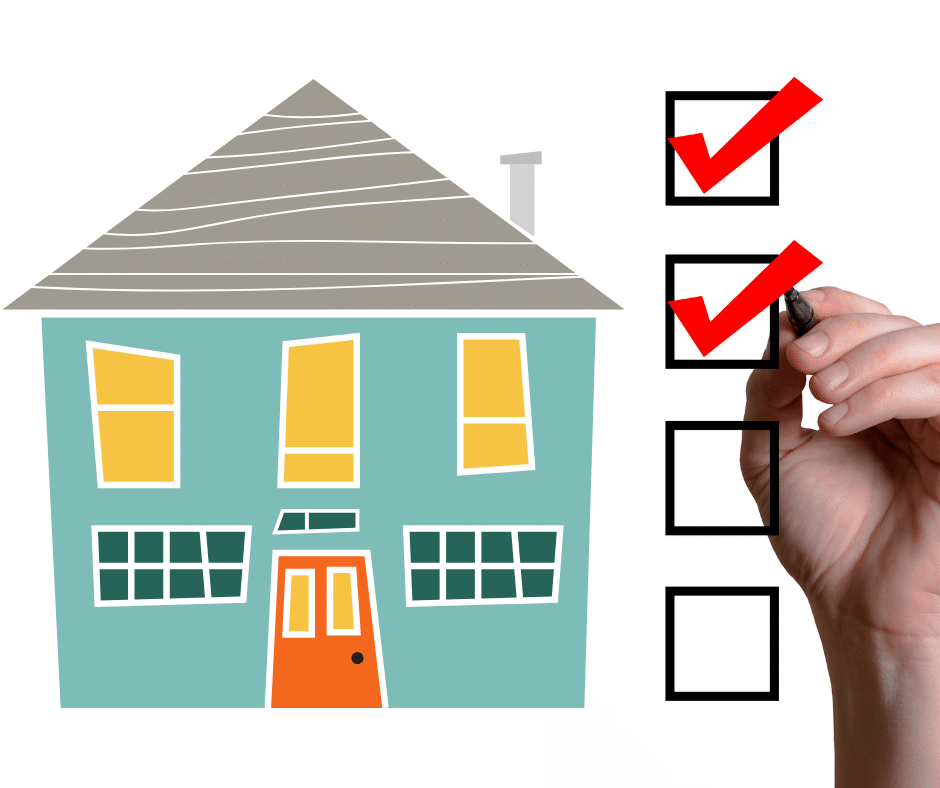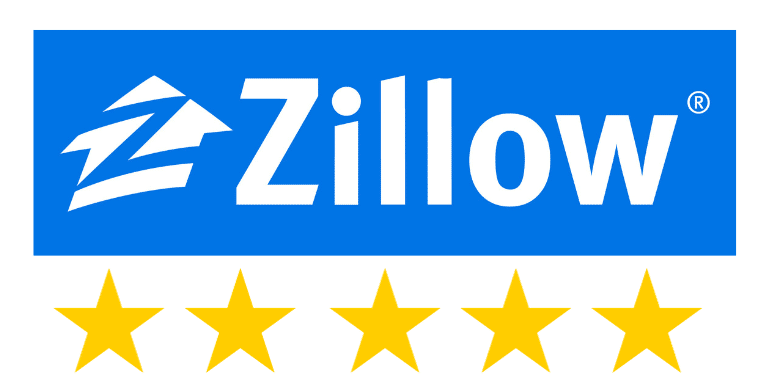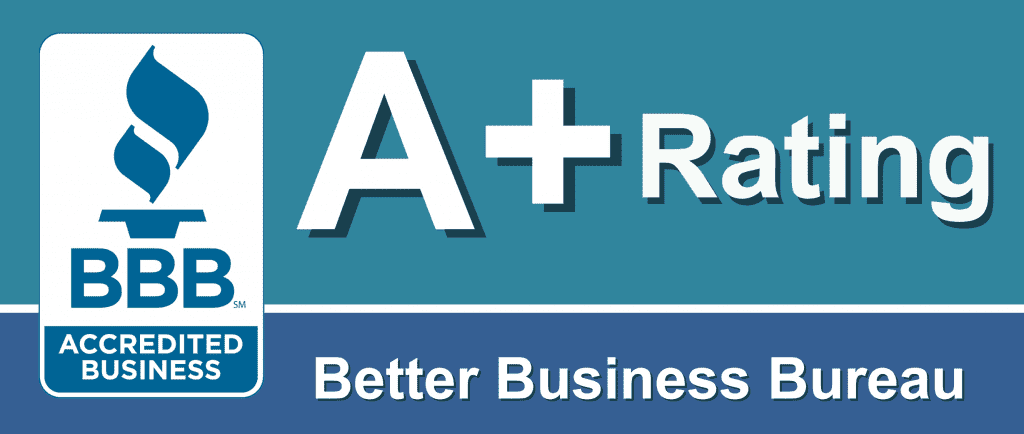
First-Time Homebuyer Checklist
Buying a home can seem daunting at first, but with our simplified homebuyer checklist, buying a home will be a bit easier. Our Homebuyer checklist will help you prepare your financial documentation, show you the importance of doing some research, how to get pre-approved, and more.
Gather your documents
One of the most significant barriers to home buying is finding out what you need to do to buy a home. basically, how do you get started? Getting a mortgage requires a first-time homebuyer to apply for a loan, allow a loan officer to review your credit history, and provide the documents needed to buy a home so you can obtain a pre-approval. Here’s what to expect.
Document Your Financial History
To be approved by a mortgage lender, first-time homebuyers will need to provide proof of employment, income, and liquid assets.
A Loan typically looks for at least two years of steady employment per standard underwriting guidelines. On top of that, you’ll need a Debt-To-Income ratio (DTI) of 50% or less (you should shoot for 45% or less).
Most mortgage lenders look for a credit score of 620 or higher. A score of 740 or higher is ideal to get the best terms. Your credit score is how underwriters gauge the level of risk associated with your loan application.
First-time homebuyers with a credit score below 620 still have options available, and you’ll want to discuss that with your loan officer.
Documents Needed To Buy A Home
Gathering the documents you need to buy a home is essential to a successful home-buying transaction. If you are a W-2 employee, Self-Employed, or Retired, be sure to connect with your loan officer about what the underwriter will want.
If you are a W-2 Employee, you’ll want to put together your most recent two years of W-2s along with your two most recent pay stubs. If you are Self-Employed, it will be the two most recent years of your personal and business tax returns (all pages).
Those who are retired will need to gather two years of tax returns (all pages), two months of bank statements (that show your retirement income being deposited into your bank account), your Social Security annual benefits page, and if you receive pension income you’ll also need your pension awards letter.
As first-time homebuyers start the home-buying process, most people think about the down payment and closing costs. Depending on your loan type, plan to save at least 3% to 5% for a down payment – plus closing cost funds. Of course, the more you put down, the smaller the loan and, ideally, the less interest you end up paying in the long term.
Plan to pay anywhere from 2% to 5% of the home’s purchase price for closing costs. Part or, in some cases, all of these fees can be paid for by the seller (depending on what you negotiate).
Please review our homebuyer documents page for additional details on what documentation a first-time homebuyer might need.
Do You have a question or need a quote?
Contact KevinLow rates, fast closings, and exceptional service.
Get pre-approved for a mortgage
Most industry experts recommend that all first-time homebuyers get pre-approved for a loan before the house hunting starts.1 A mortgage lender will provide a letter stating how much you’ve been pre-approved for, which you can then show to your Realtor.
The approval is based on your credit, income, and assets.
To get pre-approved, you’ll need to apply with a mortgage lender – you can often do this online. Be prepared with your financial documents, like your W-2s and account statements. Your loan officer will review your credit history and evaluate your income. They will also check your downpayment and your estimated Loan-To-Value ratio.
During the pre-approval process, you and your loan officer will determine which loan programs you are qualified for and discuss your options. Having the pre-approval will help you and your Realtor stay within your budget.
Find a realtor you can trust
Once you have your pre-approval, it’s time to find a Realtor. I suggest every first-time homebuyer use a Realtor.
A Realtor can help you search for homes in your price range, book showings, and help you negotiate the final terms and price. They can provide expertise on the local market and guide you through the entire process. Most importantly, they are there to protect your interest.
What’s the difference between a Real Estate Agent and a Realtor? Here is the definition of both from Realtor.com;
Real Estate Agent: A real estate agent is someone who has a professional license to help people buy, sell, or rent all sorts of housing and real estate.
To get that license, states require individuals to have prelicensing training. The required number of training hours can vary significantly by jurisdiction. In Virginia, for example, real estate agents must take 60 hours of prelicensing training, while in California they need 135 hours of license coursework.
Realtor®: In order to become a Realtor®—a licensed agent with the ability to use that widely respected title—an agent needs to be a member of the National Association of Realtors®.
As a member, a person subscribes to the standards of the association and its code of ethics.
“Essentially, the NAR holds us to a higher standard,” says Peggy Yee, a Realtor in Falls Church, VA. Membership in the NAR also comes with access to real estate market data and transaction management services, among other benefits.
source: realtor.com
How Do Realtors Get Paid?
Realtors usually work with buyers for free (in the sense they don’t require an upfront fee) and earn a commission from the sellers. To find a Realtor to work with, ask family, friends, and even coworkers. Be sure to look for first-hand experience, as having a knowledgeable agent can make or break your home-buying experience.
You can always look online; just be sure to be selective in choosing a Realtor with plenty of good reviews and a top rating with the Better Business Bureau.
Mortgage loan and property research
One of the best things a first-time homebuyer can do when buying a home is research. Here is what you need to research before moving forward with your loan approval.
Research Your Mortgage Loan Options
Research and budget out how much of a loan you can afford to determine how much you should spend on your future home (ask a loan officer to help if needed). Look at your DTI ratio and factor in a mortgage payment, homeowners insurance, and property tax. Compare these expenses to your household budget to determine what you can afford.
Use Our Mortgage Calculator
Use our mortgage calculator to help you figure out different monthly payment amounts under various interest mortgage rate scenarios.
The mortgage calculator will also allow you to input your estimated property taxes and property insurance amounts to see what those items will cost you every month (should you choose to impound your mortgage payment with property taxes and property insurance).
Research Various Property Locations
Study the locations you’re interested in – check out what homes are for sale and what price they’re listed at, then look at what the houses around them sold for. Look at property value trends. You’ll also want to consider the area’s local school districts, entertainment, and property taxes.
Find What Home Features Are Important To You
Put together a list of must-haves and it-would-be-nice-to-haves. Consider square footage, bedrooms, bathrooms, bonus rooms, yard space, home condition, and access to public transportation.
Research Market Conditions
Spend time researching the current market to determine if it’s a good time to buy. The area’s economic health and mortgage rates should play a part in your decision to buy, though there are personal factors that will also play a role in your decision.
Make an offer on the house
When you’ve found a house you love and are ready to make an offer, you’ll need to write the offer out in an “offer letter.” This is perhaps the biggest step for first-time homebuyers. An earnest money deposit accompanies most offer letters. What is an earnest money deposit?
Do You have a question or need a quote?
Contact KevinLow rates, fast closings, and exceptional service.
Underwriting your loan application
Underwriting is the next item on the checklist if your offer is accepted. During this time, your loan officer will submit the complete file to underwriting for review and approval. The complete file includes all your documents, a copy of the purchase contract, and title and escrow documentation.
With most mortgage lenders, underwriting can take as little as two to three days.2 During this time, you’ll order your Home Inspection and Appraisal.
Home inspection and appraisal
Before completing your purchase, you should get a home inspection, and your mortgage lender will usually require a home appraisal.
What Is A Home Inspection?
A home inspection is when you hire a licensed real estate inspector to evaluate the safety and functionality of the home you are buying to see if there are any noticeable issues. The inspector is usually someone who is certified to inspect residential homes and is experienced with home repairs and local home building codes.
Source: Home Inspection – koloans.com
The mortgage lender does not typically require home inspections, but they are so important. A home inspection can help a first-time homebuyer determine if the home is in good condition or if there are some issues to be aware of. The inspector will check the roof, electricity, appliances, and more. Once the sale closes, you’re responsible for any repairs.
What Is A Home Appraisal?
A home appraisal is an independent evaluation of the market value of your home by a licensed real estate appraiser.
The appraiser does not work for the lender or the homeowner and is separate from the transaction. The appraiser will provide their findings in an appraisal report, commonly called “Form 1004.” The home appraisal usually takes place after you apply for the mortgage and is in the process while the underwriter reviews your file.
Source: Home Appriasal – koloans.com
Mortgage lenders require an appraisal to ensure the home is worth the agreed-upon purchase price. As mentioned above, the appraiser does not work for the lender and is separate from your transaction. This is important; you want an independent review of the house you are about to buy.
After the home inspection and appraisal, you may ask the seller for any repairs or credits if needed.
Closing on your new home
Your loan application is approved, the appraisal has been signed off, and now you are ready for closing! At least three days before closing, you’ll receive a Closing Disclosure from your mortgage lender.3
First-time homebuyers should carefully review the Closing Disclosure with their loan officer and Realtor. This is key since the Loan Officer knows everything about the loan you are getting, and the Realtor knows everything in your purchase contract.
The next step is to sign loan documents and close the transaction. You’ll meet with a notary and sign the loan, escrow, and title documents. At the meeting, you’ll need your state-issued photo ID.
You’re a homeowner!
And just like that, you’re a homeowner!
It’s not the most straightforward process, but with enough research and preparation, you’ll easily make your way through the home buyer checklist. Add the right Realtor by your side, and you’ll have the keys to your dream home in no time. I hope our first-time homebuyer checklist has helped get you ready to buy a home, and if you have any questions, just let me know!
Sources:
- Should I Get Pre-Approved Before Looking For a House? Homebuyer.com
- How Long Does Underwriting Take—and Can You Speed It Up? – Realtor.com
- What should I do if I do not get a Closing Disclosure three days before my mortgage closing? – Consumer Financial Protection Bureau
















